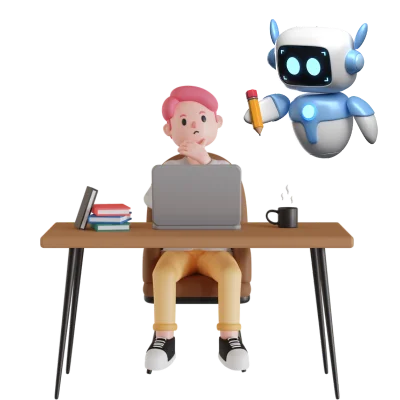Access to Vetted Talent
Save valuable time and resources by accessing a pool of candidates that have already undergone rigorous skill and background checks. Anicalls ensures that you receive profiles that align with your expectations and needs.


Providing a clear and comprehensive overview of the role's responsibilities and expectations.
Thoughtfully selecting and presenting a tailored pool of skilled candidates.
Engaging candidates in thorough discussions to understand their expertise and alignment with client needs.
Ensuring a smooth transition and effective collaboration as the consultant becomes an integral part of the client's team.
An RPA (Robotic Process Automation) Solution Architect plays a pivotal role in defining and designing automation solutions. Their main responsibility is to ensure that the automation solutions align well with the business requirements and the technical infrastructure of an organization.
An RPA Solution Architect must possess a blend of business acumen and technical expertise. Understanding the intricacies of RPA tools, as well as the broader business context in which they operate, is crucial for this role. They should be forward-thinking, able to anticipate future challenges and changes, and ensure that the RPA solutions are both innovative and sustainable.
Anicalls's architects leads the design of end-to-end RPA solutions, ensuring they integrate seamlessly with existing systems and deliver expected results.
Formulate and drive the RPA architectural and strategic leadership across various projects, aligning with the organization's objectives and the wider IT strategy.
Design RPA solutions, taking into account the RPA tools, compatibility with other systems, scalability, maintainability, and other architectural concerns.
Stay updated with the latest RPA tools and technologies and recommend the right tools based on business needs and infrastructure compatibility.
Evaluate and recommend processes that can be automated, ensuring feasibility and ROI.
Develop a comprehensive solution blueprint detailing the architecture, components, modules, interfaces, and data for an RPA implementation.
Oversee the integration of bots with other systems, ensuring seamless data flow and task execution.
Establish and maintain standards for RPA implementations. Ensure best practices in design, development, testing, and deployment phases.
Ensure that RPA solutions are optimized for performance, scalability, and reliability.
Ensure that the RPA implementations adhere to security standards, especially when handling sensitive or confidential data.